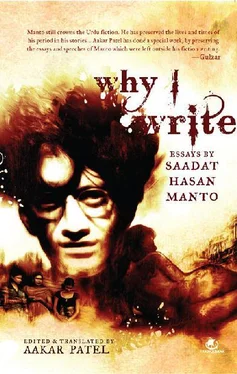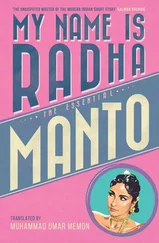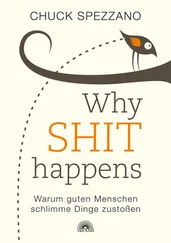Anyway, I was speaking of my mother’s tears. She noticed my poverty, the lack of clothes, my working at night in the light of a kerosene lamp. My eating in a cheap hotel. She saw all this and cried, for I had seen better days before.
For me, remembrance of things past has always been a waste of time, and what’s the point of tears? I don’t know. I’ve always been focussed on today. Yesterday and tomorrow hold no interest for me. What had to happen, did, and what will happen, will.
After she had cried her fill, my mother asked me: ‘Saadat, why don’t you earn more money?’
I replied: ‘What will I do with more money, Bibi Jaan? What I earn is sufficient for me.’
She said sternly: ‘No. The reality is that you cannot earn more than you do. If you had been more educated, it would have been different.’
That was true. But I had never been inclined towards studying. I failed in class twelve three times* before being admitted to college where my mind wandered even farther. I failed twice again. When I went to Aligarh Muslim University, as I’ve told you before, I was booted out for having tuberculosis, and that was hardly my fault.
Despite all this, I tried to laugh off my mother’s concern. ‘Bibi Jaan, what I earn is enough for me. Now if I had a wife, you would see what I am capable of earning. It’s not very difficult to make money here, you know. A man can make a fortune even without a proper education.’
After hearing this, my mother asked suddenly: ‘Will you marry, then?’
I replied without a thought: ‘But of course.’
‘Then come to Mahim on Sunday,’ she said, ‘and wait on the footpath under the flat. I’ll come down on seeing you.’
She put her hand on my head. ‘We’ll arrange your marriage, Inshallah.’
As she left, she turned back: ‘But look! Make sure you cut your hair before you come.’
I didn’t get that haircut.
However for some reason, I did manage to put black polish on my canvas shoes. I had to pay twice the usual rate to get them cleaned and white again.
That Sunday I wore them with my white slacks and went to meet my mother. I reached Mahim and stood on the footpath in front of Evening Leto Mansions as she had asked me to. Mother was waiting in the balcony of my sister’s third floor flat. She came down and asked me to walk with her.
But only twenty-five feet down the road, and we stopped at a building, Jaffer House. We went to the third floor, where Mother knocked on a door. A maid opened and we went in. Mother went into the ladies’ quarter of the flat. I was welcomed by a middle-aged man who was fair and good-looking. He took me into the living room and sat me down with great affection. He was informal and put me at ease immediately. We began to chat and soon told each other what was important about ourselves.
His name was Malik Hasan. He worked for the government, and had an interesting job. He was a fingerprint specialist with the police. His salary, and this is the level of detail he was comfortable revealing, was reasonably good. He had fathered many children. He liked, and this was interesting also, to bet on horses and gamble. He filled out the crossword every morning but hadn’t won any prize doing this. This was what I learnt about him.
I told him everything about myself, holding back nothing. That I worked in the movies, for a company that didn’t pay salaries, except an advance intermittently so that employees would not be reduced to begging.
I was amazed that when I revealed to him I drank, even in such straightened circumstances, a bottle of beer every evening, he did not react negatively. He heard all that I had to say intently and with great interest.
When I rose to leave, Mr Hasan knew every page from my book of life. As we walked back, Mother said the family had come to Bombay from Africa. ‘They know your brothers well,’ she said. Mr Hasan had been a barrister for ten years in East Africa, she added, and that was why I had been summoned to Mahim on this Sunday. They were in the process of finding a groom for a girl in the family.
Many proposals had come and had been rejected as unsuitable. What they wanted was someone from a Kashmiri family, like ours. ‘I’ve told them about you and kept nothing hidden,’ she said. Well, that was it then. Whatever I had omitted to reveal in my own candid session, Mother had fulfilled in hers.
What could this lead to, I asked myself. That they would agree to me as the man for this girl, I could not imagine. There was, I’m being honest here rather than modest, nothing about me that would make me fit for her or any other respectable girl.
I had put all these thoughts behind me by the time Mr Malik invited me home the next Sunday. He was once again very warm and gracious as a host. Lunch was soon served.There was chicken, meat koftas, vegetable curry and a delicious chutney of dhaniya-pudina (coriander-mint) and pomegranate. Actually all of it was delicious — but so hot that sweat broke on my brow. Soon, however, I became used to the spice and enjoyed the meal.
After a couple of more Sunday invitations, I met the family and became familiar with them. After this, one day Mother said to me without warning: ‘They’ve agreed to give her to you.’
Now, as I told you, I had laughed off this business of getting married. But when I heard her words, I was staggered. That someone would give me their daughter — especially after knowing me! — I had not imagined possible.
What exactly did I have on offer as a suitable candidate? I had had no proper education after passing my twelfth standard (in the third division). I was employed in a place that paid bits of salaries, not salaries. And my line of work was films and journalism. Such men are not welcome in the company of the gentry. My house was in a slum (and even that I had to pull strings to get after the landlord found out I was involved in films). I wasn’t ready to do this, not prepared at all. And when my mother added that she had agreed to the proposal on my behalf, I began to panic. I didn’t show or say anything that indicated my feelings, but my thoughts turned immediately to how I could be rid of this disaster that, truth be told, I had invited upon myself.
After much thought and consideration, I came to the conclusion that both were useless. I surrendered to my fate: I would just go ahead and not resist, I decided. Although I had made up my mind, the truth was I was still broke. How would I pay for the ceremony? This was troubling, especially because by now, the company had stopped paying even the “advance” that it infrequently did earlier.
Meanwhile news came from Mother that she had set a date. I thought of running away from Bombay, but some strange power held my feet.
Only one unpleasant solution came to mind — that I confront my employer, Seth Ardeshir Irani, with the news of my wedding and get some money out of him.
The company owed me one and a half thousand rupees. Now if I got this money, I’d be free of worry. Heck, I would be rolling in it.
And so I walked up to Mr Irani. He didn’t have the time to hear me at length. Whatever I could say to him as he walked from one place to another, he heard on sufferance.
Then he said to me: ‘Look Manto, you’re aware of the company’s state. If it were healthy, I’d have married you off myself.’ This was true. He was a large-hearted man and many employees in the past had seen the measure of his generosity.
But now he had little to offer and I could see the despair on his face at not being able to give me my dues.
You can imagine how disappointed I was. I had in fact begun to walk away when he called out to me. ‘I can only do this — buy you things necessary for the wedding,’ he said, ‘go call Hafiz.’
Читать дальше












